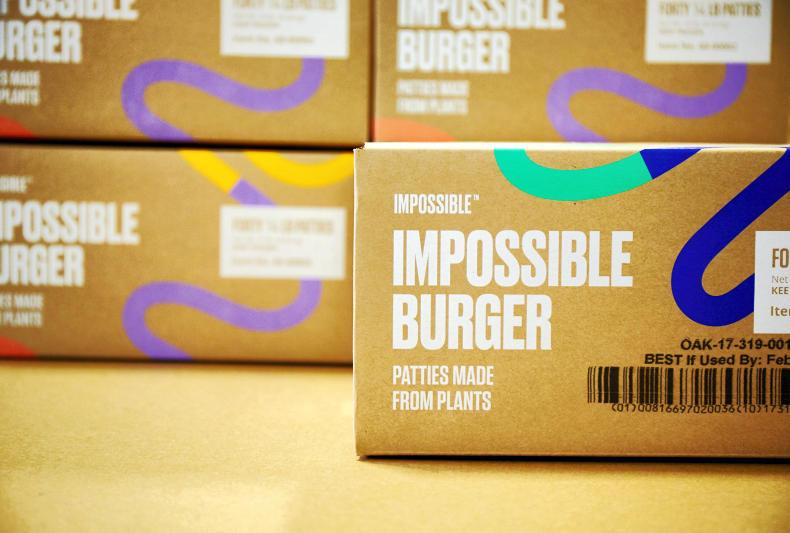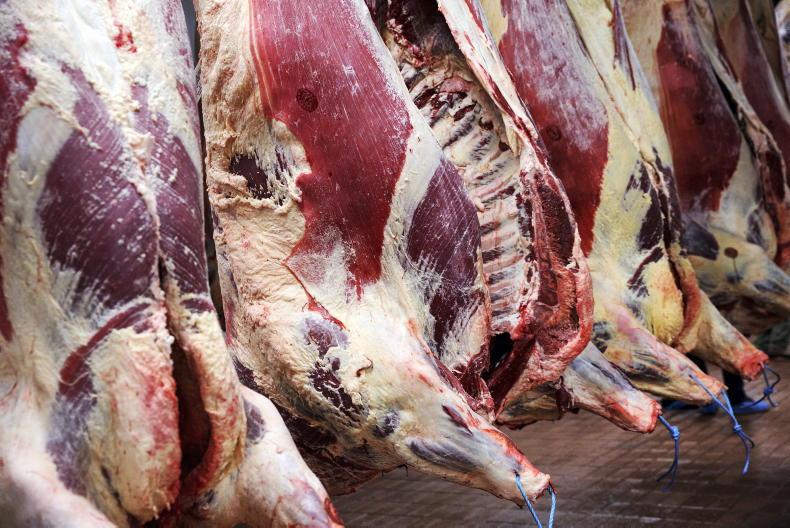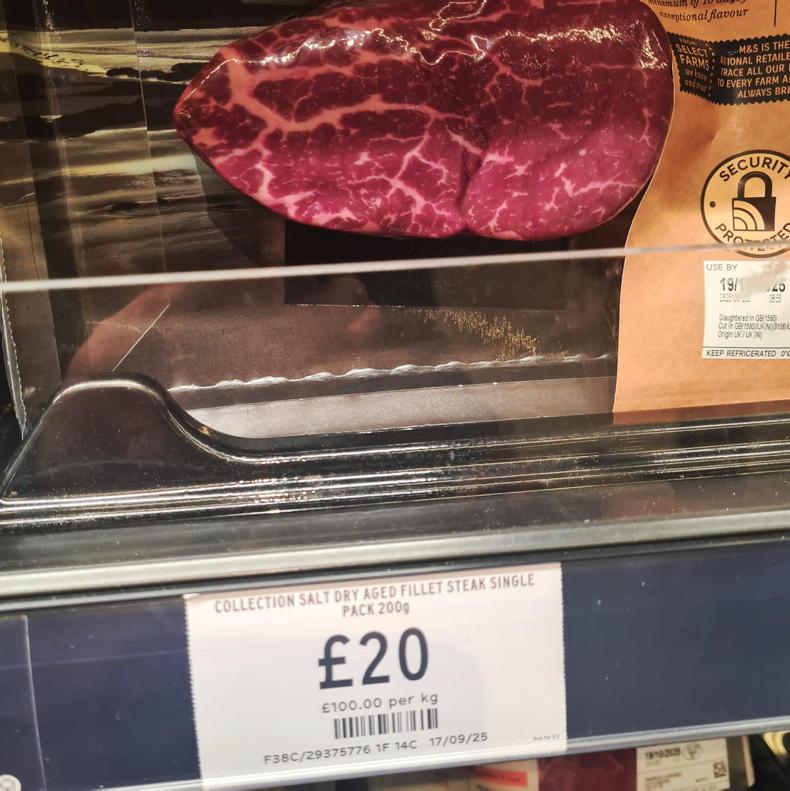In September 2018, the UN environment programme jointly awarded its Champions of the Earth award to two Silicon Valley startups, Impossible Foods and Beyond Meat.
The UN described both companies as offering a “sustainable” and more “environmentally friendly” alternative to beef burgers that could lead to a massive decrease in global cattle numbers and allow consumers to shift to plant-based meat alternatives.
When viewed in context, this is an extraordinary statement from the UN, effectively endorsing two private companies that make highly processed plant-based foods as a superior alternative to traditional meat.
One can only wonder what their colleagues in the World Health Organisation (WHO) would make of this endorsement of highly processed food.
Endorsement
Frederic Leroy, a food scientist from Brussels University, says this de-facto endorsement of plant-based foods by the UN is just one part of a worrying global narrative that is starting to cross some dangerous lines, with plant-based foods now perceived as healthier than traditional meat and dairy proteins.
“The UN is de-facto endorsing ultra-processed foods and companies with radical agendas.
Many food companies are increasingly profiting from the polarised discussion around meat
“This is not just a food trend anymore. It’s starting to reach high levels of global policy,” says Leroy, who was speaking in Ireland last week at a number of lectures organised by MSD Animal Health.
According to Leroy, many food companies are increasingly profiting from the polarised discussion around meat and are tapping in to the plant-based movement for future profit growth.
He says food companies are trying to create cultural capital by associating their plant-based products with consumer lifestyle aspirations of health, purity and progress.
Yet the science does not support this, with multiple studies showing significant dietary deficiencies in vegan or plant-based diets versus a balanced diet.
Meatless meat and dairy-free milk are some of the typical oxymorons in the food industry today
Vegan diets in particular are proven to leave humans with major deficiencies in important long-chain fatty acids such as EPA and DHA.
Probably the most frustrating aspect of this for farmers is how plant-based alternatives are marketed as copycats of traditional meat and dairy products.
Meatless meat and dairy-free milk are some of the typical oxymorons in the food industry today.
Even the humble egg is being aped with a plant-based alternative.
JUST, another Silicon Valley startup, has developed an egg-free, plant-based alternative to traditional eggs. However, a cursory glance at the ingredients shows there are very little plants in this product and it’s mostly just a stabilised liquid.
Engineered
The common thread among all of these plant-based alternatives is that they’re engineered to have the look, texture and taste of traditional meat and dairy.
The complex list of ingredients for each product in the graphic is the result of many years of trial and error in labs in Silicon Valley to engineer replica products from non-animal proteins or byproducts.
No matter how you frame it, plant-based alternatives like these are just another form of ultra-processed foods
For all the effort put into making these products look and taste like traditional meat and dairy, can they really be compared in terms of nutrient density?
No matter how you frame it, plant-based alternatives like these are just another form of ultra-processed foods.
Across the western world, one of the biggest challenges to human health is an obesity crisis and all that comes with it, including diabetes, high blood pressure and heart disease.
In contrast, naturally produced meat and dairy proteins have been a key part of human evolution and will always be an important part of a balanced, healthy
diet
One of the root causes of this obesity crisis in the developed world is our fondness for highly processed foods.
As such, positioning the Impossible Burger or any other highly processed alternative proteins as the solution to global climate change is badly misconceived.

Impossible Foods, California.
In contrast, naturally produced meat and dairy proteins have been a key part of human evolution and will always be an important part of a balanced, healthy
diet.
New opportunities for traditional proteins
So just how big a threat are these Silicon Valley startups to the traditional meat and dairy market? Sales of plant-based foods have grown rapidly in the US (by far the leading market for plant-based) over recent years as the consumer trend has gained pace.
However, it’s also important to note that meat and dairy consumption have continued to increase in the US over recent years, suggesting plant-based is growing as a separate category alongside traditional protein.
It was also interesting to see Burger King, the world’s second-largest burger chain after McDonald’s, announce this week that it was slashing the price of its plant-based offering, the Impossible Whopper, in a bid to revive flagging sales.
Veganism is not the major threat it presents itself as
While farmers may take some comfort from this decline, the global meat and dairy industry still has a huge amount of work to do to reinforce the healthy image of eating traditional meat and dairy products.
Veganism is not the major threat it presents itself as. After all, 80% of consumers that try a vegan diet return to eating traditional meat and dairy products within 12 months.
Instead, the major threat to the traditional protein industry is flexitarianism, where consumers continue to eat meat and dairy but in smaller amounts. This new consumer food trend is solely driven by personal health concerns.
Ironically, this trend does present new opportunities for the traditional meat and dairy industry to reinforce its position in the health space.
What has made these alternative products so successful to date is simply clever marketing
Traditional proteins should be much more attractive to the health-conscious consumer when set against these ultra-processed copycats with such complex lists of ingredients.
What has made these alternative products so successful to date is simply clever marketing. If the traditional protein industry wants to preserve its status on the dinner plates and cheese boards of western consumers then it needs to play more on the health message and market its natural credentials as superior to ultra-processed alternatives.
In September 2018, the UN environment programme jointly awarded its Champions of the Earth award to two Silicon Valley startups, Impossible Foods and Beyond Meat.
The UN described both companies as offering a “sustainable” and more “environmentally friendly” alternative to beef burgers that could lead to a massive decrease in global cattle numbers and allow consumers to shift to plant-based meat alternatives.
When viewed in context, this is an extraordinary statement from the UN, effectively endorsing two private companies that make highly processed plant-based foods as a superior alternative to traditional meat.
One can only wonder what their colleagues in the World Health Organisation (WHO) would make of this endorsement of highly processed food.
Endorsement
Frederic Leroy, a food scientist from Brussels University, says this de-facto endorsement of plant-based foods by the UN is just one part of a worrying global narrative that is starting to cross some dangerous lines, with plant-based foods now perceived as healthier than traditional meat and dairy proteins.
“The UN is de-facto endorsing ultra-processed foods and companies with radical agendas.
Many food companies are increasingly profiting from the polarised discussion around meat
“This is not just a food trend anymore. It’s starting to reach high levels of global policy,” says Leroy, who was speaking in Ireland last week at a number of lectures organised by MSD Animal Health.
According to Leroy, many food companies are increasingly profiting from the polarised discussion around meat and are tapping in to the plant-based movement for future profit growth.
He says food companies are trying to create cultural capital by associating their plant-based products with consumer lifestyle aspirations of health, purity and progress.
Yet the science does not support this, with multiple studies showing significant dietary deficiencies in vegan or plant-based diets versus a balanced diet.
Meatless meat and dairy-free milk are some of the typical oxymorons in the food industry today
Vegan diets in particular are proven to leave humans with major deficiencies in important long-chain fatty acids such as EPA and DHA.
Probably the most frustrating aspect of this for farmers is how plant-based alternatives are marketed as copycats of traditional meat and dairy products.
Meatless meat and dairy-free milk are some of the typical oxymorons in the food industry today.
Even the humble egg is being aped with a plant-based alternative.
JUST, another Silicon Valley startup, has developed an egg-free, plant-based alternative to traditional eggs. However, a cursory glance at the ingredients shows there are very little plants in this product and it’s mostly just a stabilised liquid.
Engineered
The common thread among all of these plant-based alternatives is that they’re engineered to have the look, texture and taste of traditional meat and dairy.
The complex list of ingredients for each product in the graphic is the result of many years of trial and error in labs in Silicon Valley to engineer replica products from non-animal proteins or byproducts.
No matter how you frame it, plant-based alternatives like these are just another form of ultra-processed foods
For all the effort put into making these products look and taste like traditional meat and dairy, can they really be compared in terms of nutrient density?
No matter how you frame it, plant-based alternatives like these are just another form of ultra-processed foods.
Across the western world, one of the biggest challenges to human health is an obesity crisis and all that comes with it, including diabetes, high blood pressure and heart disease.
In contrast, naturally produced meat and dairy proteins have been a key part of human evolution and will always be an important part of a balanced, healthy
diet
One of the root causes of this obesity crisis in the developed world is our fondness for highly processed foods.
As such, positioning the Impossible Burger or any other highly processed alternative proteins as the solution to global climate change is badly misconceived.

Impossible Foods, California.
In contrast, naturally produced meat and dairy proteins have been a key part of human evolution and will always be an important part of a balanced, healthy
diet.
New opportunities for traditional proteins
So just how big a threat are these Silicon Valley startups to the traditional meat and dairy market? Sales of plant-based foods have grown rapidly in the US (by far the leading market for plant-based) over recent years as the consumer trend has gained pace.
However, it’s also important to note that meat and dairy consumption have continued to increase in the US over recent years, suggesting plant-based is growing as a separate category alongside traditional protein.
It was also interesting to see Burger King, the world’s second-largest burger chain after McDonald’s, announce this week that it was slashing the price of its plant-based offering, the Impossible Whopper, in a bid to revive flagging sales.
Veganism is not the major threat it presents itself as
While farmers may take some comfort from this decline, the global meat and dairy industry still has a huge amount of work to do to reinforce the healthy image of eating traditional meat and dairy products.
Veganism is not the major threat it presents itself as. After all, 80% of consumers that try a vegan diet return to eating traditional meat and dairy products within 12 months.
Instead, the major threat to the traditional protein industry is flexitarianism, where consumers continue to eat meat and dairy but in smaller amounts. This new consumer food trend is solely driven by personal health concerns.
Ironically, this trend does present new opportunities for the traditional meat and dairy industry to reinforce its position in the health space.
What has made these alternative products so successful to date is simply clever marketing
Traditional proteins should be much more attractive to the health-conscious consumer when set against these ultra-processed copycats with such complex lists of ingredients.
What has made these alternative products so successful to date is simply clever marketing. If the traditional protein industry wants to preserve its status on the dinner plates and cheese boards of western consumers then it needs to play more on the health message and market its natural credentials as superior to ultra-processed alternatives.










SHARING OPTIONS